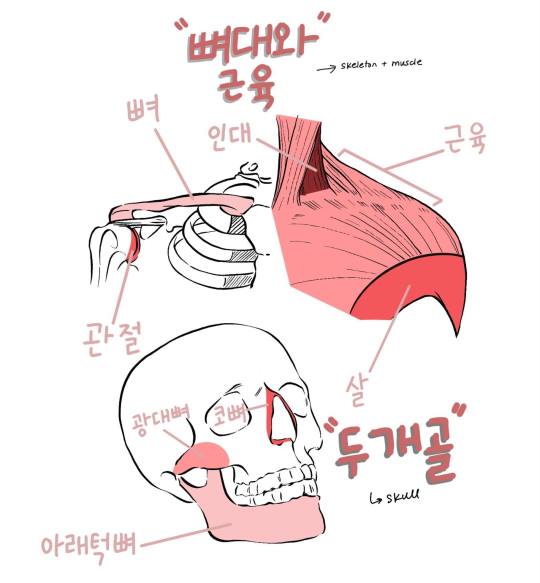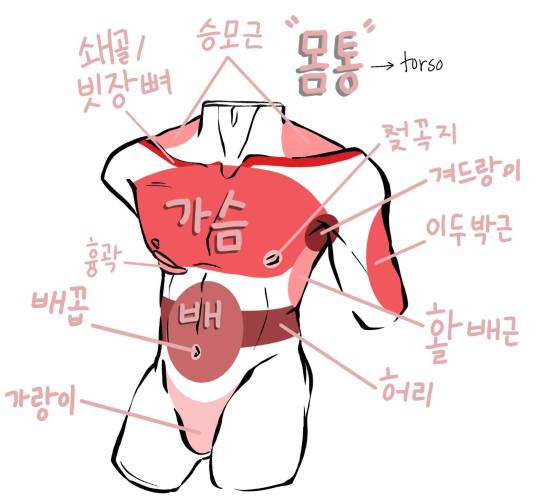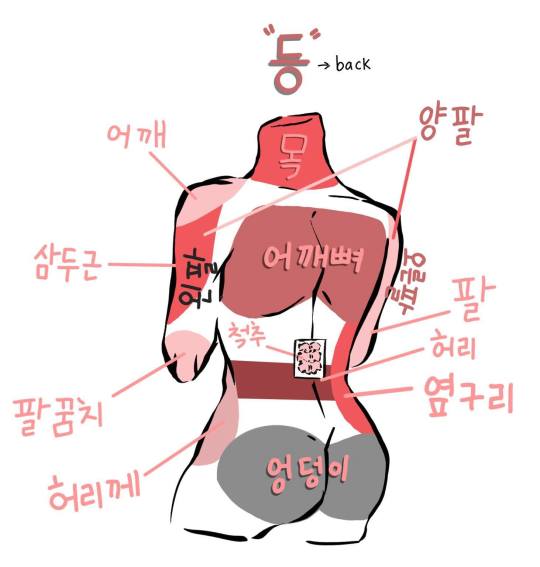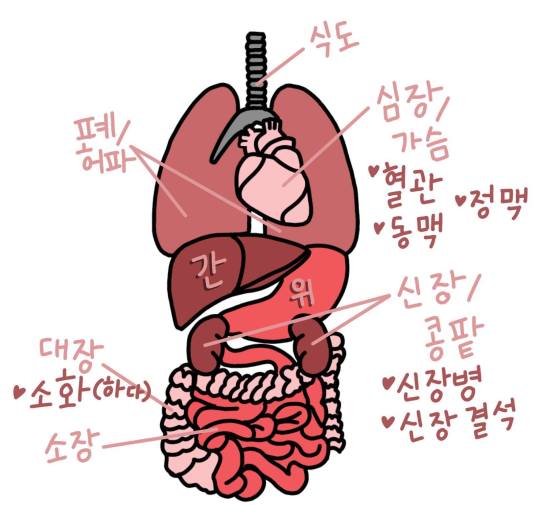#language blog
Review/Oбзор
завистливый - (adj) envious
бескорыстный - (adj) unselfish
бескорыстный труд - labor of love
ценить - (v) to appreciate, to value highly
вздыхать/вздохнуть - (v) to sigh; to yearn for, to pine after
ухаживать - (v) to take care of, to look after; to court, to date
заигрывать/заиграть - (v) to flirt; to make advances
сердце - (n) heart; temper; anger; darling, love, sweetheart
пара - (n) couple, pair
New Words/Hовые Cлова
рот - (n) mouth
знакомый - (adj.) familiar, acquainted (with); (n) acquaintance, friend
любить/полюбить - (v) to love, to like, to be fond of
страсть - (n) passion; strong love; strong obsession with, attraction to some activity
Review/Oбзор
страшно - (adv) terrifyingly; very, very badly
тотчас - (adv) immediately, at once
наверняка - (adv) certainly, for sure; safely
весело - (adv) happily, merrily, cheerfully
безполезно - (adv) uselessly
вдруг - (adv) suddenly
New Words/Hовые Cлова
чудно - (adv) wonderfully, beautifully
мрачно - (adv) gloomily, dismally
только - (adv) only, but
уже - (adv) already
영화 - Film
영화관 - Cinema
극장 - Theater
지금 - Now
상영 (중) - Showing/screening
상영작 - A film showing in cinemas
시간표 - Time table
예매하다 - To book/reserve
날짜 - Date
시간 - Time
얼마 - How much
배우 - Actor
보다 - To see
좋아하다 - To like
영화를 볼까요? - Shall we see a film?
어떤 영화를 보고 싶어요? - What film do you want to watch?
저는 이 영화를 보고 싶어요 - I would like to see this film
저는 이 배우를 좋아해요 - I like this actor
언제 보고 싶어요? - When would you like to see it?
오늘 저녁에 상영작 해요? - Is it showing this evening?
네, 6시 30분에 시작해요 - Yes, it starts at 6:30
표는 얼마예요? - How much is the ticket?
예매 됐어요 - It is booked
A&R

This honorific marker should be added to verbs when speaking with someone who deserves respect i.e. parents, people older than you, teachers, doctors… When talking about yourself you don’t use this form!
(The infinitive form of ~(으)시 is ~(으)시 + 어 = ~(으)셔)
Present tense:
(Remember 다 is dropped from the dictionary form of the verb)
Verb stem ending with a consonant + 으세요
Verb stem ending with a vowel + 세요
앉 + 으세요 = 앉으세요 - To sit
읽 + 으세요 = 읽으세요 - To read
가 + 세요 = 가세요 - To go
오 + 세요 = 오세요 - To come
이 + 세요 = 이세요 - To be (이다)
Irregulars:
(note this isn’t the case for all verbs as there are some regular ones too!)
ㄷ Irregular:
Just like polite present tense conjugation (아/어/해요), some verbs have their final ㄷ dropped and replaced with ㄹ
- 듣다 - To listen
The final ㄷ is dropped and replaced with ㄹ + 으세요 =
들으세요 - 걷다 - To walk
The final ㄷ is dropped and replaced with ㄹ + 으세요 =
걸으세요
ㄹ Irregular:
The final consonant ㄹ is dropped
- 살다 - To live
Remove the final ㄹ + 세요 (since the verb now ends with the vowel ㅏ) =
사세요 - 알다 - To know
Remove the final ㄹ + 세요 (since the verb now ends with the vowel ㅏ) =
아세요 - 열다 - To open
Remove the final ㄹ + 세요 (since the verb now ends with the vowel ㅕ) =
여세요
ㅂ Irregular:
If ㅂ is followed by a vowel, the ㅂ is dropped and 우 is added
- 덥다 - To be hot
Remove the ㅂ and add 우 + 세요 =
더우세요 - 무섭다 - To be scary
Remove the ㅂ and add 우 + 세요 =
무서우세요
ㅅ Irregular:
Just like polite present tense conjugation (아/어/해요), the ㅅ is dropped but the vowels are not contracted (example below), therefore even if the final character is a vowel 으세요 should be added
- 낫다 - 나아요 (Present tense) - To get better
Drop the final ㅅ + 으세요 =
나으세요 - 붓다 - 부어요 (Present tense) - To swell/pour
Drop the final ㅅ + 으세요 =
부으세요
⭐️A&R⭐️
진짜 오랜만이에요! 보고 싶었어요

Animal Crossing: New Horizons was finally released! We have been waiting years for this moment and couldn’t be happier now its here! We can also thank Animal Crossing: New Leaf for our friendship - without it we probably wouldn’t be such good friends, and probably wouldn’t have made this blog!
Anyway, we hope you are all having so much fun ~ in your homes ~ exploring your new islands, we’d love to see what you guys have done! Send us an ask and we can exchange friend codes and play together!
동물의 숲 - Animal Crossing (Trans. Animal forest)
모여봐요 - New Horizons (Trans. Come on/Gather round)
튀어나와요 - New Leaf (Trans. Pop out)
타운으로 놀러가요 - City folk/Let’s go to the city (Trans. Let’s visit the town/Let’s play in town)
놀러오세요 - Wild world (Trans. Come in to play)
동물들의 한국 이름! - The animals Korean name!
여울 - Isabelle
켄트 - Digby
고북 - Tortimer
너굴 - Tom Nook
콩돌밤돌 - Timmy and Tommy
낯선 고양이 - Rover
에이블 시스터즈 - Able sisters
고옥이 - Sable
고순이 - Mable
케이트 (고숙)- Labelle
카트리나 - Harriette
그레이스 / 봉팔이 - Gracie
리사 - Reese
리포 - Cyrus
부엉 - Blathers
부옥 - Celeste
도루묵씨 - Resetti (씨 is a polite name particle, meaning Mr/Mrs/Miss…)
늘봉 - Leif
파론티노 - Phineas
죠니 - Gulliver
마스터 - Brewster
A&R
전 - Before / ago
후 - After / later/from now (in)
~에 is added as it is a time particle
저는 5 분 전에 출발했어요 - I left 5 minutes ago
저는 5 분 후에 출발할 거예요 - I’m leaving in 5 minutes from now
~기 is added to the verb stem when 전 is used after a verb
~은/ㄴ is added to the verb stem when 후 is used after a verb (은 is added if the verb stem ends in a consonant, ㄴ is added if the verb stem ends in a vowel)
직전에 - Just before
직후에 - Right after
저는 학교에 가기 전에 아침을 먹어요 - I eat breakfast before I go to school
비가 오기 전에 저는 갔어요 - I went before it rained
저는 수업 직전에 숙제를 했어요 - I did my homework just before class
영화를 본 후에 친구는 만날 거예요 - After the film I will meet my friend
그 책을 다 읽은 후에 저도 빌려 주세요 - Please lend me that book after you have finished reading it
저는 저녁을 직후에 텔레비전을 봐요 - I watch TV right after dinner
A&R

테마파크 - Theme park
입장료 - Admission/entrance fees
놀이 기구 - Amusement park rides
타다 - To ride
관람차 - Ferris wheel
회전목마 - Carousel
롤러코스터 - Rollercoaster
동물 - Animals
줄 - Line/queue
머리띠 - Headband/Alice band
즐겁다 - To have fun
놀이공원에 가는 것은 재미있을 거예요 - It will be fun to go to an amusement park
놀이공원 같이 가고 싶어요! - I want to go the amusement park together!
입장료 얼마예요? - How much is the entrance fee?
뭘 타고 싶어요? - What do you want to ride?
놀이 기구 앞에 줄이 너무 길어서 한 시간 반을 기다렸어요 - Since the line in-front of this ride was so long I waited an hour and a half
다음에 관람차를 탈까요? - Shall we ride the Ferris wheel?
이 놀이 기구는 제가 가장 좋아하는 것이에요 - This ride is my favourite
놀이공원에 가면 머리띠 해야 돼요! - You have to wear a headband/Alice band when you go to an amusement park!
우리는 놀이공원에서 동물들을 봤어요! - We saw animals at the amusement park!
저는 오늘 매우 즐거웠어요 - I had a lot of fun today
저는 가족들이랑/친구들이랑 같이 놀이공원을 갔어요 - I went to an amusement park with my family/friends
A&R

언제나 / 항상 - Always
자주 - Often
가끔 - Sometimes
보통 - Usually
별로 (+안) - (not) Really/very much
거의 (+안) - Almost (never)
전혀 (+안) - (not) At all
결코 - Never
매주 - Every week
매일 - Every day
늦게 - Lately
요즘 - These days
꼭 - Without fail/certainly
그동안 - In the mean time
매주 얼마나 자주 운동해요? - How often do you exercise each week?
요즘 별로 운동을 안해요 - I don’t exercise much these days
저는 보통 주말에 일어요 - I usually work on the weekends
저는 매주 춤을 연습해요 - I practise dancing every week
제가 요즘은 텔레비전을 거의 안 봐요 - I almost never watch television these days
제 친구가 항상 공부하는데 저는 보통 공부를 안해요 - My friend always studies but I usually don’t study
저는 보통 학교에 가기 위해 일찍 일어나지만, 오늘은 우연히 늦게 일어났어요 - I usually get up early to go to school, but today I accidentally got up late
⏰A&R⏰

좋아하다 - To Like
뭘 좋아해요? - What do you like?
Kpop을 좋아해요 - I like Kpop
샤이니를 좋아해요 - I like SHINee
태연의 신곡을 좋아해요? - Do you like Taeyeon’s new song?
굉장히 좋아해요 - I really like it
어느 계절 좋아해요? - Which season do you like?
여름을 좋아해요 - I like summer
저는 따뜻한 날씨를 좋아해요 - I like warm weather
시간이 있을 때 뭐 하는 것을 좋아해요? - What do you like to do when you have time?
저는 레드벨벳 노래 듣는 것을 좋아해요 - I like listening to Red Velvet songs
저는 드라마 보는 것을 좋아해요! - I like watching dramas!
싫어하다 - To dislike/hate
왜 싫어해요? - Why don’t you like it?
저는 일찍 일어나는 것을 싫어해요 - I hate getting up early
저는 학교에 가는 것을 싫어해요 - I don’t like going to school
저는 더운 날씨를 싫어해요 - I hate hot weather
저는 큰 개를 싫어해요 - I don’t like big dogs
저는 귀신을 싫어해요 - I hate ghosts
저는 높은 곳을 싫어해요 - I hate high places
A&R

A lot of people liked PART TWO a lot! Thank you for all your kind comments and praise! PART THREE will cover the skin and necessary vocabulary underneath. Enjoy <3

*picture is of a chest (half skeleton, half muscle) and a skull (necessary vocabulary is highlighted)
- 뼈대 - skeleton
- skeleton can also be translated as: 해골 and 골격
- major differences between 뼈대, 해골, and 골격: 뼈대 and 해골 are the most similar. Sometimes 해골 can refer to only the skull (see skull for a better understanding) - both of these refer to dead skeletons. However, 해골 comes from 한자 ‘骸骨’. The word 골격 also comes from 한자 meaning 骨格 (frame, figure) or 骨骼 (skeleton).
- 근육 - muscle
- 뼈 - bone
- 인대 - ligament
- 살 - flesh (not skin, but the ‘meaty-like’ part; almost like fat)
- 관절 - joint
- 두개골 / 해골 - skull
- major difference between 두개골 and 해골: both come from 한자 ( 두개골 = 頭蓋骨 // 해골 = 骸骨), however, 해골 (according to a Korean native speaker), refers to the picture of a skull. Whereas 두개골 refers to the actual, physical skull.
- 광대뼈 - cheekbone
- 아래턱뼈 - mandible (jaw)
- 코뼈 - nasal bone
Example Sentences:
- 다행히뼈에는 이상이 없나요 - Fortunately, there is nothing wrong with the bone(theboneis alright/not broken).
- 우리 오빠는 축구를 하다 인대가 늘어났어요 - My brother pulled a ligamentwhile playing soccer.

*picture is of an eye and a pair of lips with blemishes (necessary vocabulary is highlighted)
- 피부 - skin
- 여드름 - pimple / zit
- 기미 / 주근깨 - freckles
- major difference between 기미 and 주근깨: 기미 refers to spots you get from the sun (not usually pleasant) while 주근깨 translated to actual freckles
- 다래끼 - sty
- 수염 - facial hair (this can be a mustache or beard)
- 애교 살 - the fatty pocket under the eyes
- 다크서클 - dark circles
- 점 - mole, spot
- 흉터 / 흠 - a scar, blemish
- major difference between 흉터 and 흠: 흉터 refers to an actual scar made a long time ago whereas 흠 considers all types of blemishes or flaws on the skin
- not to be confused with 상처 (injury/wound that JUST happened) and 멍자국 (bruise)
- 입슬허피스 / 입슬의 발진 - cold-sore
- difference: 입슬허피스 = lip herpes VS 입슬의 발진 = lip rash
Example Sentences:
- 여드름을 짜다가 세균에 감염될 수도 있어요 - If you pop your pimples, you might spread germs.
- 저는 작녀에 얼굴에 있는 점들을 뺐어요 - I had a few molesremoved.
Extra Vocab to Know:
- 주름(살) - wrinkles / crease
- 혹 - bump / lump
- 땀 - sweat
- 눈곱 - sleep (the goop in your eye when you wake up; eye boogies)
- 하품(하다) - sigh (to sigh)
- 방귀 - fart
- 트림(하다) - burp (to burp)
- 소름 - goosebumps / goose pimples
- 딸꾹질(하다) - hiccup (to hiccup)
I received an ask last night asking about the word for ‘throat’. You could use 목 to describe your throat but a more technical term would be 목구멍. However, this isn’t used as often. For example:
목이 아프다 - a sore throat
희주는 눈물에 목이 메였다 - tears clogged Hee-Ju’s throat
Hope that clears up some confusion!
Happy Learning :)
~ SK101
As promised, here’s PART TWO of the in depth body vocab!PART ONEcovered the face / head. Today we will look at the back, torso, and most internal organs. Enjoy <3

*picture is of a male presenting torso (necessary vocabulary is highlighted)
- 몸통 - torso
- 승모근 - traps
- 쇄골 / 빗장뼈 - collar bone
- major difference between 쇄골 and 빗장뼈: Both can translate to the scientific name ‘clavicle’. However, 쇄골 comes from 한자: ‘鎖骨’.
- 흉곽 - ribcage
- 가슴 - chest / breast
- 젖꼭지 - nipple
- 겨드랑이 - armpit
- 겨드랑이 털 - armpit hair
- 이드박근 - bicep
- 배 - belly, stomach (exterior)
- 배꼽 - bellybutton
- 활배근 - lats
- 허리 - waist
- 가랑이 - crotch
Example Sentences:
- 저는겨드랑이에서 땀이 괴도하게 났었어요 - I used to sweat a lot in my armpits
- 밥을 많이 먹어서 배가 너무 불러요 - My stomachis full because I ate too much

*blank back cut off at the legs and neck (necessary vocabulary is highlighted)
- 등 - back
- 목 - neck
- 어깨 - shoulder
- 팔 - arm
- 왼팔 - left arm
- 오른팔 - right arm
- 양팔 - both arms
- 삼두근 - triceps
- 팔꿈치 - elbow
- 척추 - spine
- not to be confused with 척수 which refers to the spinal cord
- 허리 - waist
- 옆구리 - side
- 허리께 - hip
- 엉덩이 - butt / buttocks
Example Sentences:
- 양팔을 위로 줄 뻗어 보세요 - Please stretch your armsout
- 하루 종일 앉아 있었더니엉덩이가 아파요 - My butthurts from sitting on it all day

*picture of internal organs including the lungs, heart, liver, stomach, kidneys, and intestines (necessary vocabulary is highlighted)
- 장기 - organ
- 식도 - esophagus (’gullet’ in reference to animals)
- 폐 / 허파 - lung
- major difference between 폐 and 허파: 폐 is used in more medical contexts over 허파
- 심장 / 가슴 - heart
- major difference between 심장 and 가슴: 심장 refers to the literal pumping organ whereas 가슴 is the general area of the chest but can be used as an emotional heart (as opposed to 마음, which is the feeling in your heart)
- 혈관 - blood vessel
- 정맥 - vein
- 동맥 - artery
- 간 - liver
- 위 - stomach (internal)
- 신장 / 콩팥 - kidney
- major difference between 신장 and 콩팥: 신장 comes from 한자: ‘腎臟’, where 콩팥 is the native Korean version.
- 신장병 - kidney disease
- 신장 결석 - kidney stone
- 장 - intestine
- 대장 - large intestine
- 소장 - small intestine
- 소화 (하다) - digestion (to digest)
- 혈액 / 피 - blood
- major difference between 혈액 and 피: 혈액 is the medical form!
Example Sentences:
- 저는 수년간 위에 문제가 있어 왔어요 - I’ve had issues with my stomach for years
- 어젯밤 먹은 게 고화가 잘 안 돼요 - I’m having trouble digesting what I ate last night
Extra Vocab to Know:
- 배설(하다) - excretion (to excrete)
- 대변 / 똥 - stool or poop
- major difference between 대변 and 똥: 대변 is more like feces whereas 똥 is much more casual in speech
- 소변 / 오줌 - urine or pee
- major difference between 소변 / 오줌: same as above, 소변 is more like urine where 오줌 is more casual
- both 소변 and 대변 come from 한자: 大便 (대변) and 小便 (소변)
- 싸다 - to poop/pee
- 누다 - to poop
- 음경 - penis
- 자궁 - womb
This is obviously for educational purposes, so I hope tumblr lets it stay up. But here’s PART TWO of the in depth body vocab!
Happy Learning :)
~ SK101
anon asked: 안녕하세요! My Korean friends keep telling me bad words in Korean but not tell me what they mean! Please help me know what they mean? Can you give a list of all the swears in Korean?
Hello! 안녕하세요! I did an ask similar to this I can link them here [x].
AS A REMINDER: This is for educational purposes only! Please read the following blog with caution. I will censor all words, so use your imagination.
- 놈 - b*stard
- 년 - b*tch
- 좆 - d*ck/c*ck (this word can usually be combined with other swears)
- 개새끼 - SOB // son of a b*tch (can be shortened to 개새)
- 씨발 - f*ck
- 젠장 - damn it!
- 병신 - jerk / *sshole
- 엿먹어 - f*ck you
- 꺼져 - get the hell out / leave me the f*ck alone
- 보지 - p*ssy
- 좆됐어 - i’m f*cked / it’s f*cked
- 미친(놈/년) - crazy b*stard / b*tch
- 좆나//존나 ‘x’ - f*cking ‘x’
> you can use this like 존나 맛있어 - fkn delicious! - 변태 - pervert
These are really the only ones I know - so if other ppl have more, put them in the comments or reblog to help anon out!
I hope this helps! Now when your Korean friends tell you a bad word, you can trick them haha! Best of luck and Happy Learning :)
~ SK101
I’d now like to briefly explain how I got to a point where the girl I went to karaoke with forgot that I wasn’t Japanese until I started singing Ed Sheeran. (don’t worry my ego gets a fair beating) To be fair she comes from Okinawa, people mistake her as a foreigner sometimes.
“Had I known that restaurant was so expensive, I wouldn’t have gone.” Before you read this, @ Japanese learners, have a think or even write down how you’d say that in Japanese.
Sometimes you’ll start saying a sentence and realise that you don’t know how to say the thing. WRITE THIS SHIT DOWN and go ask a native speaker. Trust me this is exhilarating stuff. As a language learner, there’s no better feeling than smashing down those barriers to having fluent conversation. Scratch that, there’s no better feeling as a human being. Maybe I just like language learning too much. So I’d like to give you a right and proper case study for how to study how to speak like a native. Trust me, they don’t teach you this is school and you for sure cannot learn this by yourself.
In Japanese there is no future tense, allow me to draw out the chart.
Did した | Am Doing している | To Do する | Will do する
Yesterday I studied = 昨日勉強した
I’m (currently) studying = 今勉強している
I study Japanese = 日本語を勉強する
I’m studying Japanese tomorrow = 明日日本語を勉強する
Bonus tip for Japanese learners. I’m going to study Japanese is still 日本語を勉強する。I see a lot of people use するつもりだ and する予定 which native speakers tend not to use unless they actually mean. I intend to study, like you have to really intend to do the thing to say つもり、if you’re just gonna study, stick to する。Also for 予定, your textbook will probably say this means “plan to” or “have plans to” and while this might make it seem like you can just create the future tense, this creates the sense that you’ve made a schedule and you’re studying tomorrow. In fact, while I’m at it べき gets used a lot more than it should. It textbooks it means “should” but it’s not just a “what should I do now”, it’s more of a “what should I have a sense of responsibility to do at this point in time”. It’s a little heavy so maybe refrain from using it too much. Here are a couple of alternatives. どうしたらいい?どうすればいい?
So now that we’ve established that verb conjugation in Japanese doesn’t allow us to make the future tense, how do I say the following sentence in Japanese?
“Had I known that restaurant was so expensive, I wouldn’t have gone.”
Let’s break this down. We’ve got two phrases separated by a comma. The first phrase can be translated as: あのレストランはそんな高いと知ってたら which isn’t that complicated but in the second phrase we run into this problem where the present me is lamenting and action that, in the past is in the future. You might need to read that last sentence a few times. Chronological order:
past me | paying money at the expense restaurant | present me, complaining
So to make it clear: Relative to past me, paying money me is in the future and that’s where we’re gonna run into a problem. If Japanese can’t conjugate verbs, how am I supposed to express something that I would or would not have done.
あのレストランはそんな高いと知ってたら、行かんかったのに。Is what my Japanese friend said they would say in that situation. Let’s clean it up a bit.
あのレストランはそんなに高いと知っていたら、行かなかったのに。My first reaction is that the second phrase wouldn’t work because by itself it means something like “aw man, I didn’t get to go” But with the context of the first phrase and our knowledge that in Japanese, future and dictionary form are the same, so it kinda makes sense that this could be “I wouldn’t have gone” and I guess that’s just a thing that we’ve gotta accept mean what they mean.
So now that I’ve had my ego put in check by not being able to say something seemingly everyday and simple, I’ve decided that the only thing I know is that I know nothing. Also another pro-tip, if you have phrases that you couldn’t work out how to say during the day, have a real go at solving this in the shower.
Also if the answer was blindingly obvious to any of you let me know so I can question where I spent all those years of studying Japanese over a conbini pudding.
- I had an entrance ceremony with cherry blossoms in the background and everything
- There’s so many clubs to choose from and I’m realising how important music is to me now that I haven’t done anything for over half a year
- After living in a different Japanese uni for a year doing language school I feel like I’m a 先輩 to other people in my program even though we’re in the same year level
- I don’t own any furniture except this futon that I’m sitting on but I’m barely even in my apartment. I get up and leave and when I get back in the evening I crash.
- University classes are waay more interesting than high school. I mean this is pretty obvious but I’m glad I’m not in high school anymore, fun as it was.
- @language learners, please keep learning your target language I want you to know how it feels to have the years of study pay off.
- @japanese language learners, you gotta put in at least twice the time that anyone else has to. With the time I’ve put into Japanese I could’ve learned like two European languages or something I dunno, keep it up.
- I’m still learning better and more efficient ways to learn Japanese, it keeps getting better
- I have to learn Chinese now oops
I’d like to briefly (turns out I lied, it’s fairly detailed) explain how I got to the point where Japanese grammar patterns are just part of life and I don’t really think about them. The most straightforward guides are Kanzen Master and Tae Kim.
That being said most Japanese textbooks will probably cover most of the grammar from N4&5. Everyone seems to like Genki, I’ve never touched it but it’s probably good.
Kanzen Master 新完全マスター
That’s it, really. My Japanese teacher at my language school in Japan literally photocopies pages out of these books.
Make your flashcards as you read the book and do practice questions. Go to Google, type the grammar pattern + grammar and japanesetest4you will come up. Read those sentences, make your own and get them checked by someone (post them somewhere like HelloTalk) and then realise how pointless every grammar pattern past N3 really is when they tell you a more natural way of not using that grammar pattern.
Also, get some Anki decks.
Pay close attention to how things connect.
What verb conjugation has to come before? Can nouns connect? How to change words? Does nominalisation occur? What does 普通形 mean?
The first question in each multiple choice section in Kanzen Master tests your 繋がり so it’s probably important. Sentences often give away what grammar patterns they will use.
For example, if I gave you the question「お前しか____だろう」
- わかる
- わからない
- わかろう
You know it’s gotta be ⑵ because ない always comes after しか。In pretty much every grammar guide these will be written down so get those highlighter engines running!
So that’s basically how you pass N1.
Pay attention to what kind of nuance the grammar has
Some grammar points can only be used when something happens due to the speaker’s intent(意志的行為), some can only be used when things happen of their own accord(自発). Some can’t be used when the speaker and the agent are the same and so on. Kanzen Master has these nuances written down below so again, get those highlighters going!
Make it easy for yourself
Kanzen master is written in Japanese so learning the words that are used to explain other words is a good move. For example, “verb, negative form” would look like 「ない形」or 「否定形」and then instead of “ない but without ない,” you could just say 「未然形」now learning is slightly more convenient and your notes will be cleaner.
There are a lot of grammar patterns that use the same words, 「わけ」「限り」「こと」「もの」「よう」など are the common enemies. Make sure you can easilytell the difference. Take your time and really learn these. As a test, try to explain them to someone else. Try to pick up on the commonly used phrases within each of those widely used words. That helps heaps.
UseSRS! Programs like Anki and WaniKani will do this for you. Now you take way less time to learn a lot more!
書き・硬い言葉 vs 話し言葉
Some grammar patterns are really useful in real life but sound odd if you were to write them in an essay
In witness whereof the parties hereunto have set their hands to these presents as a deed on the day month and year hereinbefore mentioned.
If anyone said this to you, you’d probably think it’s a joke.
The grammar patterns that are onlyused in either context will be marked as 硬い or 話し言葉. Similarly, there are some patterns that you would only use in certain contexts. Political speeches, advertisements, Japanese customer relations. This will be written as a warning but in fine texts at the bottom of each grammar pattern. You know the drill, highlighters! Maybe a different colour this time.
Be aware of what is not used in real life
When you try out your cool new grammar patterns in real life and people don’t react, that’s when you know you’ve got it right. That, or people won’t tell you when you’re wrong. Both are equally likely.
If you’re not sure, ask your friendly resident Japanese person if it’s 言うed. This’ll be edging more into speaking territory but be aware of how Japanese people use (or not use) the grammar that you’ve learned.
People love studying grammar - my thoughts
I get it, there’s formulas and you’re either right or you’re wrong. It’s easy to measure progress cause last week you were on 2課 and now you’re on 4課. And fair enough, the bulk of what you need for JLPT is grammar patterns.
However, if your goal is to pass the JLPT then maybe consider adding another goal but if not, then sure, stick to grammar.
If you wanna do uni in Japan then you’ll need N1
If your goal is to get better at Japanese, then put more time into something like learning 敬語 (respectful language) or making friends with Japanese people. I recommend, for starters, learning the N5 and N4 (I’m not sure but Genki probably covers most of these?) grammar patterns as fast as you can and then allot more of that energy into human connections while studying N3 grammar. Don’t rush into N2 grammar, they’re not used enough to warrant going in head on.
As for N1, being able to recognise the patterns is enough, don’t worry about being able to use them.
I’m doing this as much for myself to review as I am for anyone who might be interested.
Croatian uses traditional Slavic names for the months instead of the Gregorian names for the months.
Here they are:
Jan. – siječanj
Feb. – veljača
Mar. – ožujak
Apr. – travanj
May – svibanj
Jun. – lipanj
Jul. – srpanj
Aug. – kolovoz
Sep. – rujan
Oct. – listopad
Nov. – studeni
Dec. – prosinacThese are all masc. nouns and decline as such. Fun fact: studeni is an adj. so you have to be careful when declining it.
Ex.:u siječnju is “in January” but “in November” is u studenom.
Learning Icelandic:
- Digital Dialects: Basic words and phrases in Icelandic
- Icelandic 101: A great source for beginners, including pronunciation guides and history on the language.
- Icelandic Online: Free Icelandic lessons put out by a university in Iceland
- ieLanguages: A very basic guide to Icelandic
- Live Mocha: A great website with multiple lesson levels. (A poor man’s Rosetta Stone, if you will.)
- My Languages: Very basic Icelandic lessons
- Quizlet: Colloquial Icelandic flashcards
- Tungumalatorg: Icelandic video lessons with subtitles to help with following and understanding the dialogues.
Pronunciation:
- Introduction to Icelandic Pronunciations
- Forvo: Lists of words with translations and native pronunciations.
- Sigur Ros: Icelandic Pronunciations
- Wikipedia: Icelandic Phonology
General:
Grammar:
- Icelandic mini-grammar: A brief introduction to Icelandic grammar.
- Mirmir: A website with nothing but Icelandic grammar. Very indepth.
- Nativlang: A basic introduction to Icelandic grammar.
- Verbix: A great website that gives conjugations for nearly any verb you can think of. (Also has most other languages as well.)
- Wikipedia: Icelandic Grammar
- Icelandic Noun Phrases: An indepth article discussing grammar and noun placement. PDF
- An Icelandic Primer: Grammar text-book. PDF
Icelandic Dictionaries:
- Icelandic-English: This is very indepth, but hard to navigate unless you know what you’re looking for.
- Icelandic-English: A great resource, with links to common abbreviations and short grammar guides.
- English-Icelandic-Danish: Online dictionary that has English-Icelandic, and Danish-Icelandic. Though it may require payments to access some information.
- Slangurorðabókin: Icelandic Slang dictionary. It is in Icelandic, but fun for someone learning to see.
Tumblrs:
- everysinglewordinicelandic: Posts random words with descriptions.
- fuckyeahislenska: Posts pictures with words on them. The posts usually include notes on the declensions and uses.
- icelandiclanguage: A really great resource for anyone interested in studying Icelandic, run by an incredibly nice person that is always very helpful to anyone with questions.
- longicelandicwords: Like most Germanic languages, Icelandic has many long compound words. This tumblr shares some of the longer ones.
Other:
- Flick: Kind of like an Icelandic Reddit or 9gag.
- Icelandic Tongue-twisters
- Gossip.is: Icelandic Gossip
Radio:
- Bylgjan 98,9: Popular Music (Reykjavik)
- FM957: Popular Music (Reykjavik)
- Gull Bylgjan: Oldies (Reykjavik)
- Létt Bylgjan: ‘Contemporary Adult’ (Reykjavik)
- Lindin Radio: Religious (Reykjavik)
- Rás 1: Classical
- Rás 2: Pop Music/Sports
- Suðurland FM 96.3: Popular Music (Selfoss)
- Útvarp Kántrýbær: Country music (Skagaströnd)
- Utvarp Saga 99,4: News (Reykjavik)
- Xid 97,7: Rock (Reykjavik)
News:
- Bæjarins Besta: News printed in Isafjordur
- Dagblaðið Vísir(DV): Oldest Newspaper in Iceland? Tabloid.
- Eyjafréttir: News from Westman Islands.
- Eyjar: Local news from Westman Islands.
- Fjarðar pósturinn: News from Hafnarfjörður
- Iceland Review: Icelandic news in English.
- IceNews: Icelandic news in English
- Morgunblaðið: Icelandic newspaper. (This link is for the English page, but it also offers the news in Icelandic)
- Reykjavik Grapvine: News in English; more cultural than political?
- Skarpur: News from Húsavík.
- Sports.is: Sports news
- Víkurfréttir: News from Southwest Iceland
- Vísir: Icelandic News from Reykjavik
Basic Thai
สวัสดี hello, goodbye (sawat1dii)
ครับ polite male particle (krap3)
ค่ะ polite female particle (ka2)
หวัดดี hi (wat1dii)
สบายดี I’m fine (sabaai dii)
สบายดีไหม? How are you? (sabaai dii mai4)
ผม I (male) (pom4)
ฉัน I (female) (chan4)
แล้ว and (laew3)
คุณ you (kun)
แล้วคุณล่ะ? And you? (laew3 kun la2)
ขอบคุณ thank you (kawp1 kun)
มาก very much (maak2)
ขอบคุณมาก thank you very much (kawp1 kun maak2)
วันนี้อากาศดี the weather is nice today (wan nii3 aagaat1 dii)
อากาศ weather (aagaat1)
ดี good, nice (dii)
นี้ this (nii3)
วัน day (wan)
วันนี้ today (wan nii3)
ร้อน hot (rawn3)
เย็น cool (yen)
หนาว cold (naaow4)
ขอโทษ excuse me (kaw4 toot2)
ผูดภาษาอังกฤษได้ไหม? Can you speak english? (puut2 paasaa4 anggrit1 daai2 mai4)
ผูด to speak (puut2)
ได้ can (daai2)
อังกฤษ English (anggrit1)
ภาษา language (paasaa4)
ภาษาอังกฤษ English language (paasaa4 anggrit1)
ผูกภาษาอังกฤษได้ I can speak English (puut2 paasaa4 anggrit1 daai2)
ไทย Thai (tai)
ผูกภษาไทยได้ I can speak Thai (puut2 paasaa4 tai daai2)
ผูดภาษาไทยไม่ได้ I can’t speak Thai (puut2 paasaa4 tai mai2 daai2)
ผูดภาษาไทยได้ไหม? Can you speak Thai? (puut3 pasaa4 tai daai2 mai4)
ไม่ not (mai2)
ไม่ค่อย barely (mai2 koi2)
ผูดภาษาไทยไม่ค่อยได้ I can barely speak Thai (puut2 paasaa4 tai mai2 koi2 daai2)
อ่าน to read (aan1)
เลย at all (leuy)
อ่านาษาไทยไม่ได้เลย I can’t read Thai at all (aan1 paasaa4 tai mai2 daai2 leuy)
อ่านภาษาไทยไม่ค่อยได้ I can barely read Thai (aan1 paasaa4 tai mai2 koi2 daai2)
นิดหน่อย a little (nit3 noi1)
ผูดภาษาไทยได้นิดหน่อย I can speak a little Thai (puut2 paasaa4 daai2 nit3 noi1)
บ้าง some (baang2)
ผูดภาษาไทยได้บ้าง I can speak some Thai (puut2 paasaa4 tai daai2 baang2)
เก่ง skilled (geng1)
ผูดภาษาอังกฤษเก่ง I speak English well (puut2 paasaa4 anggrit1 geng1)
ผูดภาษาอังกฤษเก่ง you speak English well (puut2 paasaa4 anggrit1 geng1)
ผูดภาษาไทยไม่เก่ง I don’t speak Thai well (puut2 paasaa4 tai mai2 geng2)
มาจบกไหน Where do you come from? (maa jaak1 nai4)
ไหน where (nai4)
มา to come (maa)
จาก from (jaak1)
ประกาศ country (prateht2)
ประกาศไทย Thailand (prateht2 tai)
มาจาก___ I come from ___
อเมริกา America (ameerigaa)
ชี่อ (cheu2) name
ผมชี่อ___ my name is ___ (male) (pom4 cheu2 ___)
ฉันชี่อ___ my name is ___ (female) (chan4 cheu2 ___)
คุณชื่ออะไร What’s your name? (kun cheu2 a rai)
อะัยร what (a rai)
เขา he/she (kow4)
ยินดีที่ได้รู้จัก nice to meet you (yin dii tii2 daai2 ruu3 jak1)
ยนดี pleased (yin dii)
ที่ได้ to be able (tii2 daai2)
รู้จัก to know (ruu3 jak1)
เช่นกัน nice to meet you too (chen2 kan)
A Year in Language, Day 172: Greenlandic
Greenlandic is an Inuit language, a branch of the larger Eskimo-Aleut family. It is spoken by 50-60,000 people in Greenland.
Greenland is unique as a new world country whose only official language is the native one, the colonial language Danish being demoted in 2009. Greenlandic’s rise to linguistic dominance comes hand in hand with the nations independence from Denmark and establishing a new modern orthography for the language, a source of pride for the now 100% literate nation. There are two primary dialects; West Greenlandic or Kalaallisut, and Eastern Greenlandic or Tunumiit oraasiat. Kalaallisut is the government standard and as a result Tunumiit oraasiat is considered endangered.
Like other Inuit and North American languages, Greenlandic is polysynthetic. This means that the language makes aggressive use of inflection and derivation to create single words with meanings that normally take who phrases or sentences in English. For a quick example “oqaq” is the word for tongue, “oqarpoq"is the derived verb for “he says”, and “oqaasilerisoq” is a linguist. Verbs are even more complex than nouns, and raise questions about the basic nature of word class. In some linguistic and pedagogic works on the language you will find the term “postbase” referring to a kind of semantically “heavy” verbal suffix. These “postbases” often have the same meaning as some common full verbs like “have”, “say”, or “think”, but exist only as derivations for other verbs.
Post link
I don’t know how I didn’t do this earlier, actually
- laAbreviatura. Abbreviation
- elAcento. Accent / Accent mark
- elAdjetivo. Adjective
- elAdverbio. Adverb
- elArtículo. Article
- el Artículo indefinido/indeterminado. Indefinite article
- elComparativo. Comparative
- elComplemento directo. Direct object
- elComplemento indirecto. Indirect object
- elComplemento circunstancial (de tiempo, de lugar, etc). Adverbial of (time, place, etc)
- laConcordancia. Concordance
- elCondicional. Conditional
- laConjugación. Conjugation
- laConjunción. Conjunction
- laConsonante. Consonant
- laContracción. Contraction
- elDemostrativo. Demostrative
- laDesinencia. Suffix, desinence
- laDiéresis. Diaeresis, dieresis
- elDiminutivo. Diminutive
- elFemenino. Feminine
- laFrase, la Oración. Sentence, phrase
- elFuturo. Future tense
- elGénero. Gender
- elGerundio. Gerund
- elImperativo. Imperative
- elIndicativo. Indicative
- elInfinitivo. Infinitive
- laInterjección. Interjection
- elInterrogativo. Interrogative
- laLocución. Locution, expression
- elMasculino. Masculine
- elModo. Mood, mode
- elNegativo. Negative
- elNombre. Noun
- elNombre propio. Proper noun
- elNúmero. Number
- laPasiva, el Pasivo. Passive
- laPersona. Person
- elPlural. Plural
- elPosesivo. Possessive
- elPredicado. Predicate
- elPrefijo. Prefix
- laPreposición. Preposition
- elPresente. Present
- elPronombre. Pronoun
- elSubjuntivo. Subjunctive
- elSufijo. Suffix
- elSujeto. Subject
- elSustantivo. Noun
- elTiempo. Tense
- elVerbo. Verb
- laVocal. Vowel
I will do all verb tenses next^^

